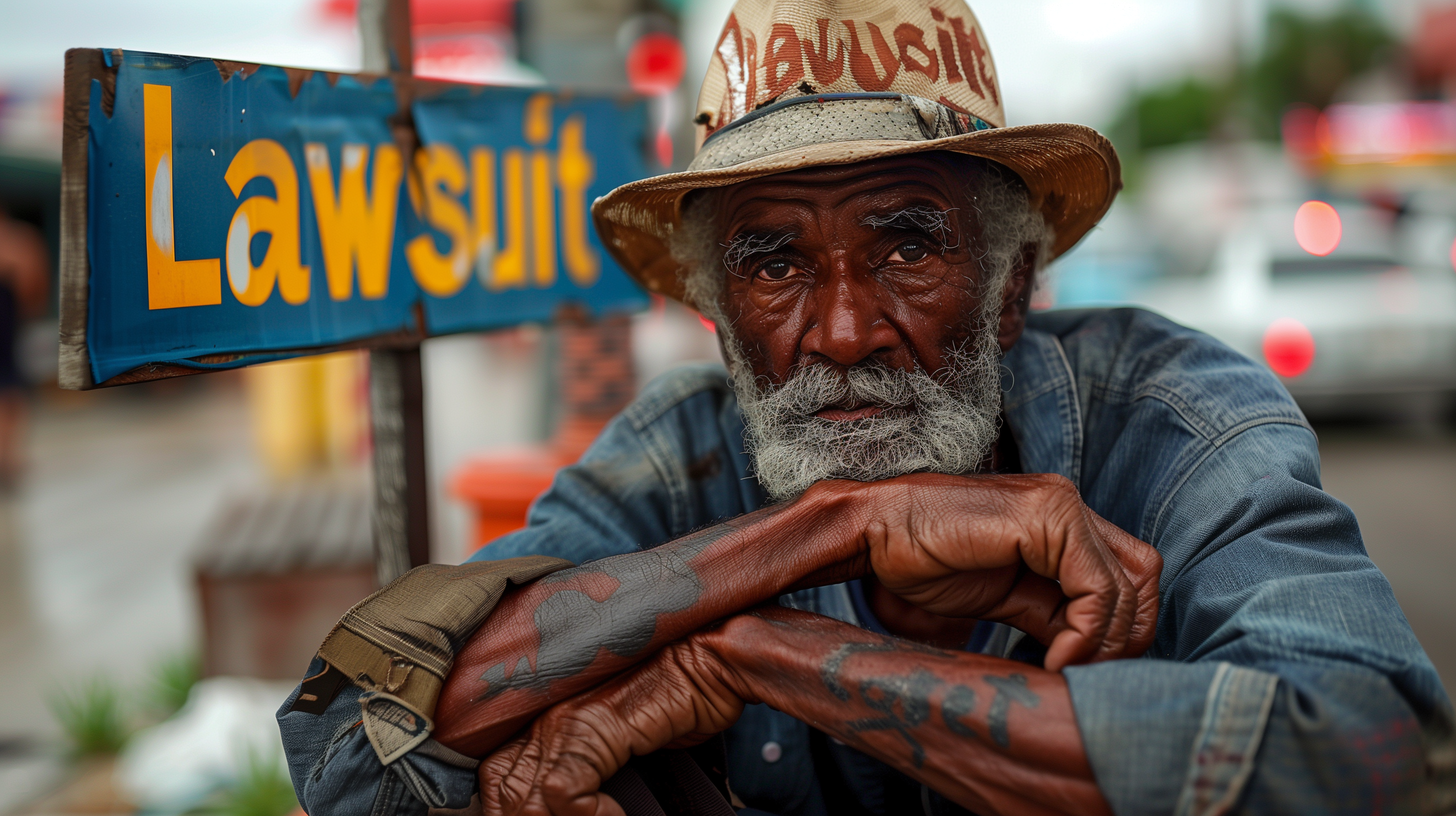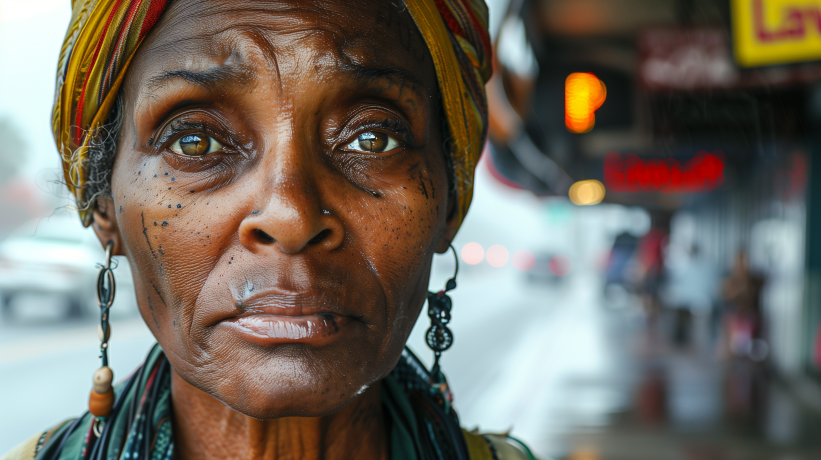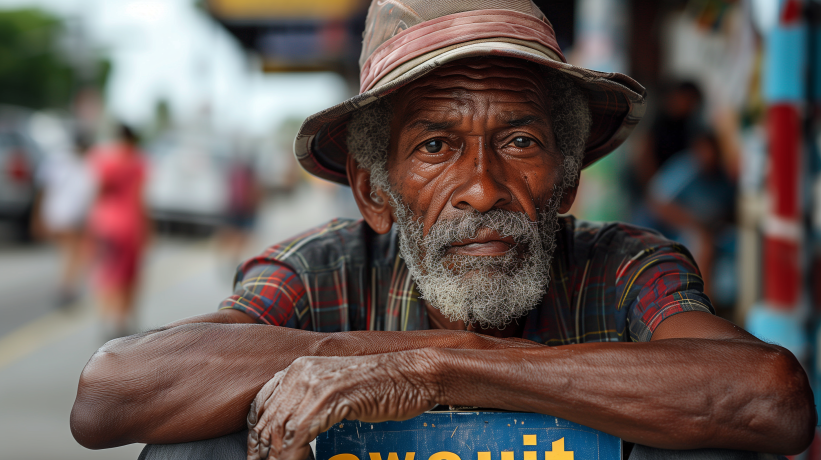
LA Forward Institute sues LA officials for allegedly obstructing the Venice Dell housing project, citing discrimination and misuse of power. This lawsuit aims to challenge systemic housing discrimination and promote fair housing practices in Los Angeles.
by LawInc Staff
July 15, 2024
A blockbuster housing discrimination lawsuit against the City of Los Angeles is making waves for its potential to reshape the City’s approach to affordable and supportive housing. The case, LA Forward Institute, et al. v. City of Los Angeles, et al., filed July 10, 2024, alleges the City and key officials have intentionally obstructed and delayed a fully approved supportive and affordable 140-unit housing project in Venice, one of LA’s whitest and wealthiest neighborhoods.
This guide provides an in-depth look at the lawsuit from a legal perspective, breaking down the parties, facts, causes of action, requested remedies, and potential impacts. Learn how state housing and anti-discrimination laws are being wielded to challenge the City’s alleged discriminatory practices and failure to address its affordable housing and homelessness crises.
From the Fair Employment and Housing Act to the Equal Protection Clause, Government Code 65008, Affirmatively Furthering Fair Housing requirements, and more, get a comprehensive analysis of the novel legal theories and weighty allegations asserted against the City, as well as the complex web of facts and evidence informing this consequential case.
1. Understand the Parties
-
- LA Forward Institute: A 501(c)(3) non-profit plaintiff advancing racial and economic justice in housing and other issues.
- Kathleen L. Coates, Sylvia Aroth and Gary Williams: Individual plaintiffs including a disabled unhoused woman and two taxpayers.
- City of Los Angeles, LA City Council, Housing Dept. (LAHD), Dept. of Transportation (LADOT): Municipal defendants alleged to have discriminatorily obstructed housing.
- LA City Councilmember Traci Park and City Attorney Hydee Feldstein Soto: While not named as defendants, these newly elected officials are accused of playing a central role in improperly thwarting the project based on constituent animus.
- Venice Community Housing and Hollywood Community Housing: Non-profit affordable housing developers of the Venice Dell Community project at issue.
Examples:
-
- LA Forward Institute’s mission to advance housing justice has been frustrated by the City’s alleged discrimination against Venice Dell.
- Kathleen Coates, a disabled unhoused woman, would qualify for and gladly live in supportive housing at Venice Dell if given the chance.
- LAHD and LADOT are accused of improperly stopping work on fulfilling their obligations under the Venice Dell agreement at the behest of Councilmember Park.
- Councilmember Park and City Attorney Soto, both vocal project opponents, are alleged to be using City resources and their offices to block the project based on prejudiced pushback from affluent constituents.
- Venice Community Housing and Hollywood Community Housing have seen their fully approved project stalled after years of collaboration with the City.
How It Matters:
-
- Understanding the parties illuminates what’s at stake for advocates like LA Forward Institute trying to advance equitable housing, developers investing time and resources into beneficial projects, and unhoused people being denied stable homes.
- The involvement of high-ranking newly elected officials suggests a troubling power dynamic, where a vocal NIMBY (Not In My Backyard) minority can enlist those in power to undermine duly approved projects.
- Naming multiple City agencies and the City Council shows how many layers of local government are implicated in perpetuating housing discrimination through action and inaction.
- The taxpayer plaintiffs demonstrate this affects all Angelenos, as public resources are allegedly being misused in service of exclusion and segregation.
- Having both organizational and individual plaintiffs allows the harms to be articulated on a systemic and human level.
FAQs:
-
- Why did LA Forward Institute bring this case? As an advocacy group advancing housing justice, LA Forward Institute asserts the City’s discriminatory obstruction of Venice Dell directly undermines its mission. The group has standing because it diverted resources to fight the City’s actions.
- Can Kathleen Coates sue even though Venice Dell isn’t built yet? Yes, as a disabled unhoused person seeking housing, Coates has an interest in the project and is being concretely harmed by the City blocking access to desperately needed supportive housing she would qualify for.
- Why are Councilmember Park and the City Attorney named? Although not defendants themselves, their specific conduct as public officials to allegedly abuse their power and impede the project is central to proving the lawsuit’s claims of discrimination.
- What is the role of the developer plaintiffs like Venice Community Housing? While not plaintiffs, their experiences dealing with the City’s sudden obstruction of their approved project after years of collaboration provides key factual support for the legal claims.
- Could other plaintiffs join the case? Potentially. Other unhoused people being denied access to Venice Dell, organizations harmed by the City’s actions, or taxpayers concerned with misuse of public resources could seek to join as plaintiffs if they have proper standing.
2. Grasp the Key Facts Alleged
-
- Venice Dell Is Fully Approved Supportive and Affordable Housing: After years of public outreach, approvals and environmental review, the Venice Dell Community project was greenlit by the LA City Council to provide 140 homes for unhoused and low-income people on City-owned land in Venice.
- Newly Elected Officials Opposed the Project: City Council District 11 member Traci Park and City Attorney Hydee Feldstein Soto both expressed opposition to Venice Dell during their 2022 campaigns.
- The City Abruptly Ceased Cooperating with Developers: Shortly after Park and Soto took office in 2023, longstanding collaboration between the City and Venice Dell’s developers ground to a halt as the City Attorney blocked progress and communication.
- Vocal Venice Dell Opponents Expressed Discriminatory Animus: Select Venice residents railed against the project, complaining it would bring mentally ill and dangerous people who would destroy the community character.
- Mayor Bass and Councilmember Park Suggest Improper Veto Power: Public statements indicate Councilmember Park alone can block or force changes to Venice Dell, despite full City Council approval, amounting to a “pocket veto.”
Examples:
-
- After years of public outreach and environmental review under the California Environmental Quality Act (CEQA), the LA City Council granted Venice Dell all necessary land use approvals in 2022. These approvals, which deemed the project exempt from further CEQA review, were upheld by two courts against legal challenges from project opponents.
- As candidates, Traci Park vowed to “squash” Venice Dell “day one” while Hydee Feldstein Soto argued the lame duck councilmember should not advance the project he supported.
- In early 2023, the City abruptly cancelled standing meetings with Venice Dell’s developers, declined to process applications, stopped communicating about the needed parking structure, and interfered with Coastal Commission proceedings.
- Venice Dell opponents made public comments laden with discriminatory stereotyping, suggesting unhoused and mentally ill people would endanger the community and destroy the neighborhood character.
- Mayor Bass stated “It’s going to have to be worked out with the city council member [Traci Park]. It is very, very controversial in Venice.”
How It Matters:
-
- The City’s long and public process approving Venice Dell makes its sudden obstruction after a change in political leadership deeply suspect, suggesting improper motivations.
- Inflammatory statements from Park and Soto opposing the project before taking office support an inference of intentional discrimination once in power.
- The City’s abrupt ghosting of longtime partners on Venice Dell after Park and Soto took office is circumstantial evidence that the City was now doing the bidding of these project opponents.
- The discriminatory animus expressed by certain Venice residents opposed to the project, while not directly attributable to City officials, provides context for the type of political pressure that may have influenced the City’s actions.
- Mayor Bass’ public statements suggest an unlawful pocket veto, where Park alone is allowed to override full City Council approval and force changes or stop a project in her district.
FAQs:
-
- If Venice Dell was approved, how can the City just stop it now? That’s the crux of this case – plaintiffs argue the City is violating laws by refusing to perform its ministerial duties and let the approved project proceed. The City would have to make formal findings to reverse approval.
- Weren’t courts still reviewing Venice Dell’s approval in 2023? No, courts upheld the project’s approval and CEQA exemption against two challenges. Despite this, the City still ceased progress on Venice Dell when Park and Soto took power.
- Does it matter that private citizens, not the City, made discriminatory comments? Citizen statements alone don’t prove the City had discriminatory intent. But if officials acted on those constituents’ animus, it can be evidence of the government’s discrimination. The full context matters.
- How could a single Councilmember veto a full Council vote? That’s what plaintiffs argue the “pocket veto” system allowed here unlawfully does. If true, it’s an improper delegation of council power to an individual member, nullifying the official vote.
- Is changing or stopping Venice Dell illegal even if officials think it’s bad policy? Depends how it’s done. The City can change direction on policy but it must follow proper procedures, make necessary findings, and act from valid, non-discriminatory motives. Plaintiffs allege that didn’t happen here.
3. Analyze the Causes of Action
-
- First Cause of Action – FEHA, Cal. Gov. Code 12955 et seq.: Defendants’ conduct discriminates based on race, disability, and source of income by denying housing opportunities.
- Second Cause of Action – Equal Protection, Cal. Const. Art. I, § 7: Defendants’ acts were motivated by discriminatory intent against people of color and people with disabilities.
- Third Cause of Action – Gov. Code 65008(b): Defendants prohibited and discriminated against Venice Dell because of the protected characteristics and income level of intended occupants.
- Fourth Cause of Action – Gov. Code 65008(d)(1): Defendants imposed different requirements on Venice Dell than other developments because it is subsidized affordable housing.
- Fifth Cause of Action – Gov. Code 8899.50: Defendants violated their duty to affirmatively further fair housing by obstructing Venice Dell in a manner perpetuating segregation.
- Sixth Cause of Action – LA City Charter 244, Admin Code 2.2, CA Const. Art. XI § 7: Defendants improperly delegated City Council’s authority to an individual councilmember to veto Venice Dell.
Examples:
-
- Under the Fair Employment and Housing Act (FEHA), the City’s alleged actions have created a “disparate impact,” meaning they disproportionately harm certain groups, in this case, unhoused people of color and people with disabilities who would qualify for housing at Venice Dell.
- Plaintiffs argue that the City’s actions violate the Equal Protection Clause, alleging that the officials’ motives were discriminatory (“invidious discriminatory purpose”) based on race and disability, rather than simply having an unintentional discriminatory effect.
- The City imposing a de facto councilmember veto system with more stringent approval requirements for Venice Dell compared to other market-rate projects likely violates Government Code 65008(b) and (d)(1).
- Actively obstructing affordable housing that would help desegregate a concentrated area of white affluence is inconsistent with the City’s affirmative duty to further fair housing integration under Government Code 8899.50.
- Plaintiffs assert the Venice Dell obstruction amounts to an unlawful delegation of the full City Council’s powers to Councilmember Park as an individual, violating city charter and the state constitution.
How It Matters:
-
- The FEHA claim relies not just on disparate impact on protected classes, but allegations of the City’s discriminatory intent, policies, and practices that deny housing and perpetuate segregation.
- The state Equal Protection challenge confronts the City’s alleged discriminatory purpose and effect head on, asserting officials acted with animus, not just awareness of Venice Dell’s likely residents’ demographics.
- Separate claims under Gov. Code 65008(b) and (d) target the City’s unfair, differential treatment of subsidized housing versus market-rate development in the planning process.
- The affirmatively furthering fair housing claim holds the City accountable to proactively promote integration, not just avoid obvious discrimination, an emerging theory being tested in this case.
- The City Charter arguments get at the crux of the lawsuit – that LA has allowed an unlawful backdoor veto system enabling individual councilmembers to block disfavored affordable housing projects.
FAQs:
-
- Is it illegal for cities to consider public opposition when evaluating housing? No, cities can consider public input. But they cannot base housing decisions on opponents’ discriminatory animus. Officials must have valid, nondiscriminatory reasons for their actions.
- What’s the difference between disparate impact and discriminatory intent? Disparate impact focuses on a policy’s discriminatory effect, even if not purposeful. Discriminatory intent requires showing the policy was motivated by prejudice, not just awareness of impacts. Both theories are asserted here.
- How can LA delegate land use decisions to individual councilmembers legally? It likely can’t. The lawsuit argues LA’s City Charter vests legislative power in the full City Council. Allowing an individual member to secretly veto housing after Council approval likely violates the Charter.
- Why does it matter if affordable housing is treated differently? Singling out affordable housing for extra scrutiny discriminates against protected classes who disproportionately rely on it. Laws require cities to treat affordable and market-rate housing equally in the approval process.
- What does it mean for LA to “affirmatively further fair housing”? Federal and state laws require cities to go beyond just preventing discrimination, and actively foster integration through land use decisions and housing policy. Blocking affordable housing in white affluent areas may violate this mandate.
4. Examine the Requested Relief
-
- Declaratory Judgment: A legal declaration from the court stating that the City’s actions in obstructing Venice Dell, and its practice of allowing individual councilmembers to veto affordable housing projects, are illegal.
- Injunction – Let Venice Dell Proceed: A court order forcing the City to cease delaying Venice Dell and take all affirmative steps to allow its construction and operation as planned.
- Injunction – Stop Discriminatory Practices: An order enjoining the City from obstructing or delaying any other approved affordable housing projects in a discriminatory manner.
- Mandate for Affirmative Compliance: An order compelling the City to proactively take all steps needed to comply with fair housing laws and duties.
- Costs and Attorneys’ Fees: A request that the court award plaintiffs their reasonable fees and costs for having to bring the taxpayer lawsuit.
Examples:
-
- The declaratory relief claims ask the court to formally announce, with the force of law, that the City is violating statutes, constitution, and city charter through its conduct and policies regarding Venice Dell and affordable housing.
- Plaintiffs want an injunction forcing the City to stop thwarting Venice Dell and let it be built as approved, performing all ministerial duties and steps needed for it to proceed.
- A broader injunction would bar the City from continuing to use any unlawful pocket veto system allowing individual councilmembers to secretly obstruct properly approved affordable housing in their districts.
- Plaintiffs seek a mandate directing the City to take meaningful action to promote fair housing, beyond just halting misconduct, such as proactively advancing long-stalled affordable projects.
- As a taxpayer suit challenging government waste, plaintiffs assert the right to recover costs and attorneys’ fees if they prevail, so the City bears the financial burden of its misconduct.
How It Matters:
-
- A declaratory judgment would provide clarity to the City and public that LA’s actions regarding Venice Dell are unlawful. It would establish legal precedent other courts and cities would look to.
- Specific injunctive relief letting Venice Dell proceed would provide tangible benefits to LA’s unhoused residents who could access its shelter. It would mitigate the real human impact of the City’s delays.
- Broader injunctive relief could force reforms to the City’s entire approach to approving affordable and supportive housing projects, making individual councilmembers’ NIMBY objections carry less weight.
- Mandatory injunctions directing particular affirmative acts make the City take proactive steps to redress its fair housing failures, beyond just ceasing discrimination. This promotes integration.
- The threat of fee shifting in taxpayer suits challenging unlawful government action deters LA from deploying its vast legal resources to fight challenges to its discriminatory practices, leveling the playing field.
FAQs:
-
- How likely is it a court would block an individual councilmember affordable housing veto? Based on the alleged facts, there’s a strong argument that the pocket veto system violates LA’s City Charter and statutory bans on treating affordable housing differently. Courts are generally skeptical of improper delegations of legislative power.
- What are the limits on a court’s power to order the City to let Venice Dell proceed? Courts can enjoin unlawful government action and may compel purely ministerial acts officials have a clear, non-discretionary duty to perform. But they’ll avoid encroaching on areas of legal discretion.
- How much could the City have to pay if plaintiffs win? Attorney fee awards depend on prevailing rates, hours worked, and case complexity. But for taxpayer suits and housing cases against a major city, fee awards could easily stretch into the high six figures or more.
- Is there precedent for this kind of mandated affirmative fair housing relief? The affirmatively furthering fair housing doctrine is a new but growing area of law. Courts are starting to order race-conscious remedies for housing segregation, but this case is pushing the envelope.
- What happens if the City doesn’t comply with any orders in plaintiffs’ favor? Municipalities and officials can be held in contempt for defying court orders, facing potential fines or other sanctions. But if LA digs in its heels, protracted litigation may be needed to enforce a favorable ruling.
5. Consider the Potential Impacts
-
- Advancing Housing Integration: Holding LA accountable for blocking affordable housing in a wealthy white area sets precedent for more equitable geographic distribution of such housing.
- Reining in NIMBY Influences: Establishing the illegality of pocket veto systems curbs the power of vocal NIMBY objectors to block disfavored housing via lobbying individual councilmembers.
- Strengthening Enforcement of Fair Housing Duties: A ruling imposing proactive obligations on LA to further fair housing could provide a blueprint for other municipalities.
- Deterring Discriminatory Delay Tactics: Substantial exposure to fees and costs for unlawfully obstructing approved affordable housing may make cities think twice about caving to discriminatory pushback.
- Expediting Much-Needed Shelter: Letting Venice Dell and similar projects proceed as planned will accelerate access to housing for underserved and vulnerable Angelenos.
- Legal Precedent: A victory for the plaintiffs could set a powerful legal precedent, empowering communities and advocates across the state to challenge discriminatory housing practices and demand accountability from local governments.
Examples:
-
- A ruling for plaintiffs could help desegregate LA’s wealthiest enclaves and chip away at the stark geographic disparities in distribution of affordable housing and shelter beds.
- Striking down LA’s secretive pocket veto system would promote transparency and democratic accountability in the housing approval process, making backroom capitulation to NIMBY pressure less tenable.
- An order commanding LA to affirmatively redress fair housing failures could spur long-overdue proactive steps, like rezoning wealthy areas for density and prioritizing at-risk affordable projects.
- Making LA pay plaintiffs’ hefty fees and costs for obstructing Venice Dell would send a powerful warning that such delaying tactics will hit the City where it hurts – the pocketbook.
- Hundreds of currently unhoused Angelenos could gain access to permanent homes with supportive services if this lawsuit gets Venice Dell back on track for its planned occupancy.
How It Matters:
-
- This case provides a template for challenging local governments’ failures to equitably site affordable housing and reduce segregation, an issue many cities face.
- A win for the plaintiffs would boost the power of the fair housing movement and housing justice advocates by creating strong new legal precedents to build on.
- At a time of surging homelessness and affordable housing shortages, this suit seeks to break through political logjams and NIMBY pressure that stall needed projects.
- Exposing and penalizing abuses of the housing approval process can foster greater government accountability, transparency, and integrity in housing and land use decisions.
- Most importantly, this case could tangibly impact the lives of LA’s most vulnerable by clearing the way for hundreds of permanent supportive homes for those in dire need.
FAQs:
-
- Will this case solve homelessness and housing segregation in LA? No single lawsuit can resolve such complex challenges, but a ruling for plaintiffs here would be a meaningful step, boosting fair housing efforts and clearing red tape that delays needed shelter.
- What about local control over land use – should courts really override the City? Courts have a vital role in ensuring cities follow the law. If LA is unlawfully discriminating or violating its charter, judicial intervention is proper and necessary, while still respecting lawful local control.
- Will this stop residents from being able to voice concerns about housing projects? No, the case isn’t trying to silence all opposition. But it could rein in the disproportionate weight given to NIMBY voices and provide recourse when cities improperly cave to discriminatory pushback.
- How broadly could the ruling in this case apply? The specific findings would govern LA, but the legal theories asserted – if validated by the court – could provide a roadmap for advocates in other cities facing similar fair housing and discriminatory land use problems.
- When will the impacts of this case be felt? Some effects, like getting Venice Dell back on track, could manifest quickly with a favorable ruling. But the longer-term precedential impacts on fair housing enforcement and City practices would reveal themselves over time.
Summary

The Deeper Issue: The Venice Dell lawsuit alleges LA officials are weaponizing the approval process to block an affordable housing project based on discriminatory animus and political pressure from wealthy, predominantly white communities.
LA Forward Institute v. City of Los Angeles seeks to enforce fair housing laws on behalf of LA’s most marginalized – unhoused, disabled, and low-income communities of color. It confronts the ugly reality of exclusionary housing development in stark terms.
After years of collaboration between developers and the City, the lawsuit alleges newly elected Councilmember Traci Park and City Attorney Hydee Feldstein Soto have quietly weaponized LA’s housing approval bureaucracy to obstruct an already-approved supportive housing project in one of LA’s whitest, wealthiest enclaves. This pocket veto, motivated by discriminatory animus from NIMBY groups, allegedly violates multiple housing and civil rights laws.
At its core, this case is about who gets to live where, and whether LA will take meaningful steps to disrupt its entrenched patterns of housing segregation and inequality. A win for the plaintiffs could strike a major blow against exclusionary land use policies and affirm cities’ proactive duties to further fair housing. Housing advocates across the nation will be watching closely.
Staying Informed and Helping Out
To follow the latest developments in LA Forward Institute v. City of Los Angeles as it proceeds through the courts, check the City of LA’s Council File Management System, local legal news sources, and websites of the organizations involved, like LA Forward Institute and the nonprofit developers.
If you believe in the mission of advancing fair, just, and equitable housing policy, consider supporting the plaintiffs’ work through donations or volunteering. Help spread awareness by sharing accurate information about the case and the deeper issues of housing discrimination, segregation, and homelessness it seeks to confront.

Support housing justice in Los Angeles by staying engaged with this groundbreaking case and the deeper fair housing issues it implicates.
Test Your Knowledge of the Venice Dell Lawsuit
Questions: The Parties & Basic Facts
-
- 1. Which of the following is NOT a named plaintiff in the lawsuit?
- A) LA Forward Institute
- B) Kathleen L. Coates
- C) Sylvia Aroth
- D) Venice Community Housing
- 2. Who are the main defendants in the case?
- A) City of Los Angeles and the City Council
- B) LA Housing Dept. (LAHD) and Dept. of Transportation (LADOT)
- C) Councilmember Traci Park and City Attorney Hydee Feldstein Soto
- D) All of the above
- 3. What is the Venice Dell Community project?
- A) A 140-unit supportive and affordable housing development
- B) Proposed for a city-owned lot in Venice
- C) Fully approved by the LA City Council in 2022
- D) All of the above
- 4. According to the complaint, when did the City’s conduct regarding Venice Dell allegedly change?
- A) When Venice Dell was first proposed in 2016
- B) After the project was approved in 2022
- C) Once Councilmember Park and City Attorney Soto took office in 2023
- D) After Mayor Karen Bass was elected in 2022
- 5. What did some vocal Venice residents allegedly say about the project?
- A) It would house “dangerous” mentally ill and addicted people
- B) The residents would destroy the character of the neighborhood
- C) It would bring crime and public safety risks
- D) All of the above
- 1. Which of the following is NOT a named plaintiff in the lawsuit?
Answers: The Parties & Basic Facts
-
- 1. D) Venice Community Housing is one of the non-profit developers of the Venice Dell project, but it is not a plaintiff in the lawsuit against the City.
- 2. D) The complaint names the City of LA, City Council, and two key departments (LAHD and LADOT) as defendants, while also discussing the specific conduct of Councilmember Park and the City Attorney.
- 3. D) Venice Dell is described as a fully approved 140-unit supportive and affordable housing development planned for a City-owned lot in Venice.
- 4. C) The lawsuit alleges that in 2023, after Park and Soto took office, the City abruptly stopped cooperating with developers and began actively obstructing the approved project.
- 5. D) The complaint details public comments from Venice Dell opponents using all these discriminatory stereotypes and tropes to argue against the project.
Questions: Legal Issues & Impacts
-
- 1. Which of the following laws does the lawsuit NOT allege violations of?
- A) Fair Employment and Housing Act (FEHA)
- B) Americans with Disabilities Act (ADA)
- C) California Constitution Equal Protection Clause
- D) Government Code 65008 and 8899.50
- 2. What type of discriminatory intent does the lawsuit allege the City acted with?
- A) Racial animus
- B) Disability discrimination
- C) Prejudice based on low-income status
- D) All of the above
- 3. What does the lawsuit call the power allegedly given to individual councilmembers to block affordable housing?
- A) A “councilmember privilege”
- B) An “aldermanic veto”
- C) A “pocket veto”
- D) A “backroom blockade”
- 4. If successful, what could this lawsuit compel the City to do regarding Venice Dell?
- A) Cease any further delays and obstruction of the project
- B) Take all steps necessary to allow Venice Dell’s construction as planned
- C) Proactively comply with fair housing laws on the project
- D) All of the above
- 5. In the bigger picture, a victory in this case could impact LA housing by:
- A) Advancing integration in the city’s wealthiest enclaves
- B) Reining in the power of NIMBY opposition to affordable housing
- C) Strengthening enforcement of cities’ proactive fair housing duties
- D) All of the above
- 1. Which of the following laws does the lawsuit NOT allege violations of?
Answers: Legal Issues & Impacts
-
- 1. B) The complaint does not allege ADA violations. It asserts claims under FEHA, the California Constitution’s Equal Protection Clause, and state housing laws.
- 2. D) The City is alleged to have purposefully discriminated against the project’s prospective residents based on their race, disability status, and income level.
- 3. C) The lawsuit terms LA’s practice of letting individual councilmembers block affordable housing a “pocket veto” system that unlawfully skirts full City Council approval.
- 4. D) The plaintiffs seek an injunction compelling the City to cease obstruction of Venice Dell, take all steps to allow its completion as planned, and comply with fair housing mandates.
- 5. D) If successful, this case could have major impacts by advancing integration, curbing NIMBY influence, and affirming proactive fair housing duties in LA and beyond.
Disclaimer
The legal guide above provides an in-depth analysis of the high-profile housing discrimination lawsuit LA Forward Institute, et al. v. City of Los Angeles, et al. by a purported legal expert. It’s meant to inform readers about the parties, facts, key legal claims and potential impacts of this groundbreaking case. However, this is an exceptionally complex matter with profound societal implications.
Readers should view this guide as one knowledgeable perspective on the case, but not definitive legal or factual conclusions. Because the lawsuit is still pending, the ultimate resolution of the legal issues – and whether the plaintiffs can prove their allegations – remains to be seen. Other housing law experts may assess the claims differently.
If you have personal knowledge of or connection to the parties and events in this case, it’s always best to rely on official court records and guidance from your own attorneys, not secondary sources, however thoroughly researched. While every attempt was made to ensure this analysis is accurate, it’s not intended as formal legal advice.
Also See
UCLA Under Fire: The Explosive Allegations in New Civil Rights Lawsuit
Los Angeles Inferno: LAFD Firefighters Sue Over Devastating Natural Gas Truck Explosion















